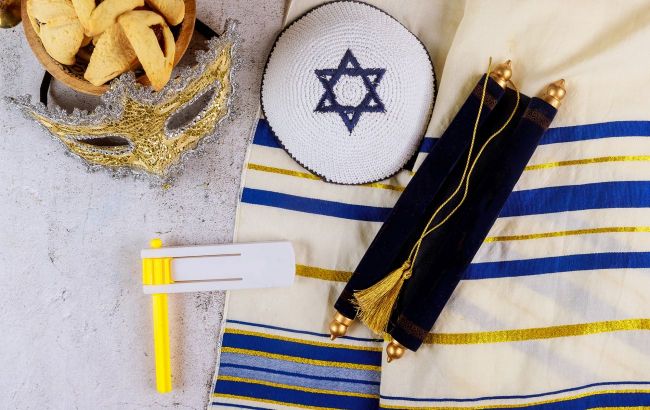How to celebrate Purim 2025: Traditions, customs and prohibitions
 The holiday of Purim begins today (photo: Getty Images)
The holiday of Purim begins today (photo: Getty Images)
Purim is a colorful Jewish holiday celebrated every year in honor of the rescue of the Jewish people from extermination in the ancient Persian Empire. Learn about the history of the holiday, its symbolism, celebration traditions, and important prohibitions to fully immerse yourself in the atmosphere of this special day.
History and symbolism of Purim
Purim originates from the events described in the Book of Esther. In the fifth century B.C. in the Persian Empire, King Ahasuerus had an advisor, Haman, who plotted to destroy the Jewish people.
Thanks to the courage of Queen Esther and her cousin Mordecai, Haman's plan was thwarted and he was defeated. The name "Purim" comes from the word "pur", which means "the lot", which Haman cast to determine the day of the destruction of the Jews.
In 2025, the celebration of Purim begins on the morning of March 13 and ends on the evening of March 14. The end of the holiday and the feast falls on the Sabbath, so it's worth moving all the fun and entertainment forward in time.
Traditions of celebrating Purim
Recitation of the Book of Esther (Megillat Esther) On the evening and morning of Purim, Jews gather in synagogues to read the Megillah. When Haman's name is mentioned, the congregation makes noise, using rattles or other means to drown out his name.
Gift exchange (Mishloach manot) It is customary to give friends and family baskets of goodies, such as fruits, nuts, and traditional triangular cakes - gomentash or hamantashen.
Charity (Matanot le'eyonim). On this day, special attention is paid to helping the needy, giving alms and food to the poor.
Festive meal (Seudat Purim) Lush feasts are organized with lots of food and drinks. Traditionally, wine is consumed to emphasize the joy of the holiday.
Carnivals and costume performances. Many communities hold theatrical performances, masquerades, and carnivals where participants dress in costumes to celebrate the victory of good over evil.
Prohibitions and restrictions on Purim
Unlike many other Jewish holidays, Purim does not have strict work prohibitions. However, since it is a holiday of joy, it is recommended to avoid any actions that may overshadow the festive mood.
On the eve of Purim, the 13th of Adar (March 13), the Esther fast is observed, which lasts from dawn to dusk, symbolizing the fast that Esther kept before her appeal to the king.
Sources: Wikipedia, Ifcj, chabad.

